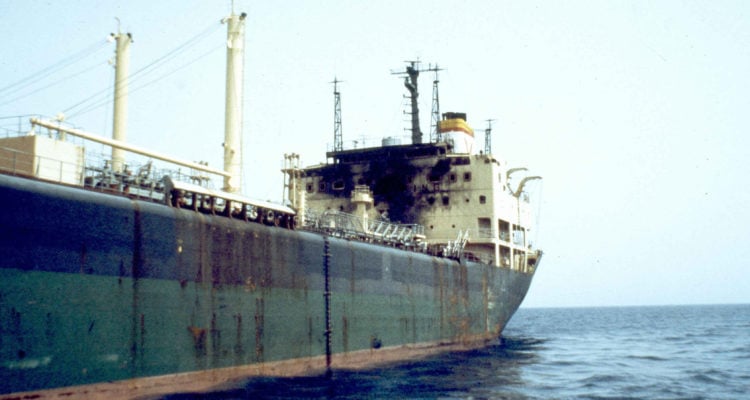Oil sales to China, a major source of income, has dropped by more than half since January.
By Batya Jerenberg, World Israel News
The U.S. government announced Tuesday that it is placing eight more companies on its blacklist as part of President Donald Trump’s “maximum pressure campaign” against the Islamic Republic.
The companies will be sanctioned for “knowingly engaging in a significant transaction for the sale or transport of petroleum or petroleum products from Iran,” the State Department said.
The reason given is that “Iran continues to destabilize global security with its nuclear threat, ballistic missile program, and support for terrorist groups,” and the sanctions’ purpose is “to “stem the flow of revenue the regime uses to fund these destabilizing activities.”
The sanctions block the companies and their owners from their American properties and from receiving funds, goods, or services in the U.S.
The move is in line with a National Security Presidential Memorandum that Trump signed earlier this month “to implement a campaign aimed at driving Iran’s oil exports to zero.”
China is a huge buyer of these products, with a November report by the Congressional Research Service stating that “nearly all” of Iran’s petroleum exports went in 2024 to the Asian giant.
The Chinese have now drastically reduced their purchase of Iranian crude, according to an investigation by the opposition Iran International news service, thus dealing Tehran a heavy financial blow.
Citing data by Kpler, a company that provides data and analytics for global trade, the London-based service reported that China’s imports “fell by more than half in January,” even before the first new sanctions were ordered, compared to October 2024.
China implemented its decision by forbidding sanctioned oil tankers from entering its Shandong port, where 90% of Iranian crude is offloaded, Iran International explained.
It credited Beijing’s fear of potential sanctions by the incoming administration for the move.
The U.S. Energy Information Administration has estimated that Iran’s oil companies earned about $53 billion for the state coffers from their exports in 2023. Others say its petroleum and petrochemical sales generated as much as $70 billion.
Sanctioning more companies now for helping Tehran sell its oil will tighten screws that had begun to be applied last year by the Biden administration.
After Iran’s first attempted direct attack on Israel with hundreds of missiles and drones in March, the U.S. put sanctions on ports, tankers, and refineries involved in the purchase of Iranian oil and added dozens more vessels to the blacklist after Tehran tried a second wave in October.





